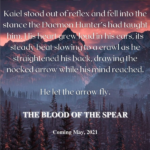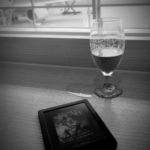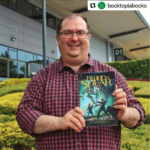Winter Be My Shield
Children of the Black Sun #1
By Jo Spurrier
BUY IT
Sierra has a despised and forbidden gift — she raises power from the suffering of others. Enslaved by the King’s Torturer, Sierra escapes, barely keeping ahead of Rasten, the man sent to hunt her down. Then she falls in with dangerous company: the fugitive Prince Cammarian and his crippled foster-brother, Isidro.
But Rasten is not the only enemy hunting them in the frozen north and as Sierra’s new allies struggle to identify friend from foe, Rasten approaches her with a plan to kill the master they both abhor. Sierra is forced to decide what price she is willing to pay for her freedom and her life.
______________________________________________________________
This was the last interview I conducted over at Galaxy. Jo is an awesome new Aussie author so I felt it only right to give her a plug here.
If you haven’t picked up Winter Be My Shield yet then go forth and buy it! It’s great!. But read this interview first 😉
1. What started you writing, and is it the same thing that still inspires you today?
I’ve been making up stories all my life, they’d be rattling around in my head even if I didn’t get them on paper. I started properly writing them down when I couldn’t find the book I wanted to read — not a specific book;I just had the urge to read a story with certain sorts of characters in a certain types of setting, but nothing I found fit the bill. In the end I realised I had to write it myself, and I’m still doing it today, writing the books I want to read.
2. How many novels did you write before you got published?
Just one, an epic fantasy with a more traditional setting and premise. I submitted it to an agent and got representation with a view to improving the work, but it was very much a first effort and it had a number of flaws that I didn’t have the experience to fix. When my agent dropped me (and I don’t really blame her) I submitted it to a publisher on my own. Something like 18 months later, I got a call from Stephanie Smith of Voyager to say, ‘I liked it, but I’m not going to publish it.’ I said, ‘if I were to write something else, would you be interested in seeing it?’ She said absolutely, and so I wrote Winter Be My Shield. She and my agent did me a favour by turning down my first book. It was an apprentice piece, a good education, but ultimately not fit for public consumption.
3. What was the first thing you did when you found out a publisher wanted to print your work?
I think I had a minor meltdown! I tried to call my now-husband, but my mobile was flat, so I called my mum on the home phone and then realised half-way through the conversation that I could actually call him on the land-line as well. After that I called my best friend and I think we screamed at each other for a good five minutes.
4. What books, or authors, would you say have most influenced you in the type of writer you’ve become?
Katherine Kerr has always been one of my favourites. The first four books of her Deverry series were the first books I ever bought for myself.
The other writer I’ve been influenced by is Jean Auel. I read her Earth’s Children series as a young teenager, and though I no longer love them the way I used to — I don’t have much patience for endless sex scenes and plotlines based around miscommunication between characters — I have always adored the immersive quality of her world-building, and the engrossing detail of living in an ice-age world.
More recently, Robin Hobb has been an idol of mine, beginning with the Liveship Traders (which I perversely read first) and the other two trilogies in that world. I never dreamed I’d have a Robin Hobb quote on my cover!
5. Your debut is WINTER BE MY SHIELD, can you tell us a bit about the story and how you came up with it?
Winter Be My Shield is a story of survival, of finding friends and allies in dark places, and about just how much you’re prepared to sacrifice to save the lives of those you love… or to destroy your enemies.
When the story first came to me, I had only the sketchiest of details — I had a fugitive prince, a wounded nobleman and a girl who was running away from something. But I did feel very strongly that they needed to live somewhere cold. The deep-winter setting of the book puts an interesting pressure on the people who live there — they’re forced to rely on each other despite their conflicting goals and ideals, and it forces them to find common ground even when they’re at each other’s throats.
6. Do you consciously chose themes to explore in your work or does it ‘just happen’?
A bit of both! Some of them come about as a natural consequence of winding the characters up, putting them in place and setting them loose. Other themes are very deliberate, like the consequences of Isidro’s injury and disability. Early in the story, Isidro is captured and tortured to give up the whereabouts of his foster-brother the fugitive prince Cammarian. Isidro survives, but he’s left crippled, with his life as a warrior cut short.
I have Rheumatoid Arthritis, and at the time I was putting this story together I was struggling with the disease and its effect on my daily life. I was frustrated with the trope of magical healing in Fantasy, where characters that are badly injured are made as good as new in the space of a few days, or else fall to the wayside and drop out of the story. I wanted to read about someone in the situation I found myself in, with the road ahead suddenly blocked, in a body that can no longer do the things you expect of it. I wanted a book where the disabled character remains at the centre of the action — Isidro’s story doesn’t end with his maiming, that’s only the beginning, and he has no choice but to learn how to survive with his shattered arm.
7. What do you consider the most challenging about writing a novel, or about writing in general?
I call it the Treadmill Effect. It begins when you first open the file to start a new book, and continues until you’re about 30 pages from the end. Every day you sit down at the keyboard and you feel like you’re just staring at that spot on the wall, working as hard as you can but not getting any closer. Tracking word-count doesn’t help — seeing it creep up by 2000 words at a time feels like a drop in the bucket when your target is somewhere around 180k. There’s no way around it, you just have to apply bum to seat and fingers to keyboard and push on.
8. Do you use an outline when you write, or are you more of a discovery writer?
Outlines all the way! I am not a seat-of-the-pants writer, not even a little bit. Of course, things don’t always go according to plan, but that’s when I sit down with a cup of tea and make a new plan. Whenever I get writers block, I know it’s because I’ve taken the wrong track, and I have to back up and try a different route.
9. How much research do you do, and is it before or during the writing process?
The far-northern setting of Winter Be My Shield has taken a huge amount of research, both before and during writing, as often I don’t know what I need to know until I need to know it. I’ve written an article about my rese
arch for the Voyager Blog that goes into more detail, but I’ve read cold weather camping guides, archaeological books, memoirs by cold-climate tree-changers and adventurers, and descriptions and histories of native peoples of boreal regions all over the world. TV documentaries are useful too, and I’ve ended up doing a surprising amount of research on YouTube, for things like watching the break up of river ice, or hearing the sound of flowing lava.
10. Do you ever base your characters on people you know or have known?
Never. I don’t exactly know where my characters come from, but it’s not from anywhere around here.
11. What is your work schedule like when you’re in writer’s mode?
Usually I get my writing done in 2-2.5 hours each day — it depends on how hard I fight the procrastination habit. I aim for 2000 words a day, 5 days a week. I take weekends off, otherwise I tend to burn out. Once the writing is done I’ll plan the next day’s work, do some research, or just daydream for a while. That’s an important part of the process, too!
12. What do you do to relax, when you’re not in ‘writer’s mode? (are you ever not in writer’s mode?)
I’m always thinking about one story or another, but when I’m not working I love to make things — I knit, spin and sew, and I love to cook, too, though that makes me sound far more traditional than I actually am! I think of creativity as a muscle, the more you use it the stronger it gets. I’ve also started taking dance classes with some friends, and I find that a great outlet — it uses a completely different part of the brain than writing, and it’s a good antidote to being parked in front of a computer for hours at a time.
13. How do you balance what you’re reading against what you’re writing?
I don’t, generally. I find it really hard to read when I’m writing. It’s a little easier while I’m editing, but usually I save my books for the weekends. It helps if I read in a different genre, but I still find it harder to focus on my story when I’ve got someone else’s running through my head, and if I’m not careful I’ll start to mimic the other writer’s voice.
14. And finally, what future novels/ideas do you have in the works? What can your readers expect next?
I am working on a plan for when I finish the third Children of the Black Sun book and give these poor bastards a rest. It’s about ley lines and city-states and a river like the Ganges. It’s about dragons and transformation and seeds that grow into very strange things, and priests who turn to science to understand the world in which they live. But it’s still early stages yet, so all the above may well be subject to change!






